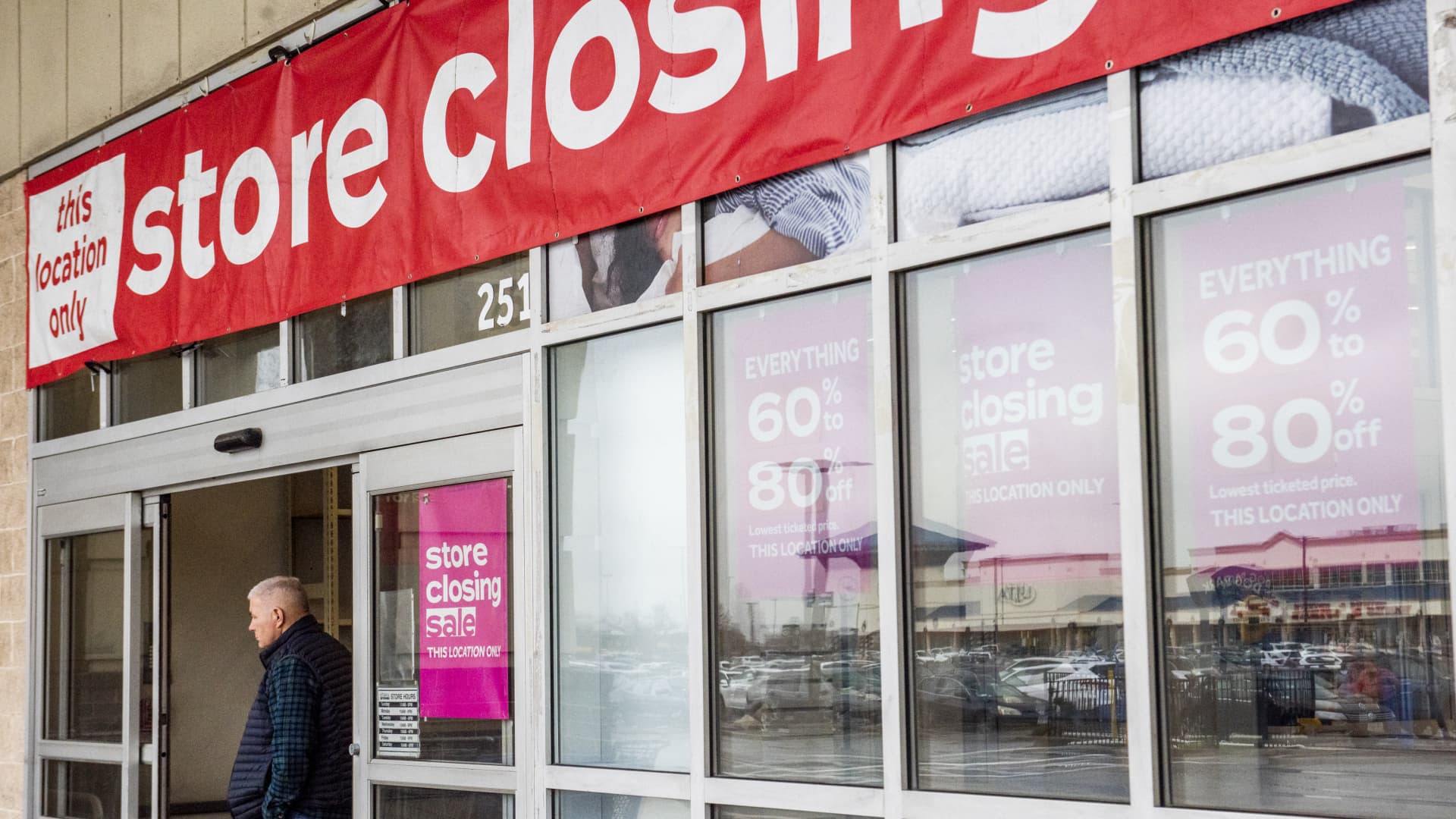
 business
business 
Bed Bath & Beyond has been in discussions with prospective buyers and lenders as it works to keep its business afloat during a likely bankruptcy filing, according to people familiar with the matter.
The retailer is in the midst a sale process in hopes of finding a buyer that would keep the doors open for both of its major chains, its namesake banner and Buybuy Baby, said the people, who weren’t authorized to discuss the matter publicly.
At the same time, Bed Bath has also been looking for a lender to provide financing that would keep the company going if it were to file for bankruptcy protection in the coming weeks, the people said.
A Bed Bath spokeswoman said Wednesday the company doesn’t comment on specific relationships but has been working with strategic advisers to evaluate all paths to regain market share and enhance liquidity.
“Multiple paths are being explored and we are determining our next steps thoroughly, and in a timely manner,” the spokeswoman said, declining to comment further.
A representative for AlixPartners, which CNBC recently reported was hired as the company’s advisor, declined to comment.
Earlier this month Bed Bath warned it may need to file for bankruptcy after its turnaround plans failed to substantially boost sales and repair its balance sheet. The company reported net losses that exceed $1.12 billion for the first nine months of the fiscal year. It’s blown through its liquidity in recent months, shouldered a heavy debt load, and faced strained relationships with its suppliers.
Comparable sales declined 32% year over year in the most recent fiscal quarter, ended Nov. 26. Company leaders said the company has had a harder time keeping shelves stocked, as vendors change payment terms or decide not to ship merchandise because of the retailer’s financial challenges.
Last week, CNBC reported Bed Bath had begun another round of layoffs in an attempt to further cut costs. The company had about 32,000 employees as of Feb. 26, 2022, according to public filings.
The company has been working to find a route that sees its chains survive, the people added. A day before Bed Bath issued a “going concern” warning, it announced in an employee memo that it had hired Shawn Hummell, a former Macy’s executive, to lead its namesake brand’s retail, store operations and merchandising operations as senior vice president of stores. Prior to his time at Macy’s, Hummell worked for Abercrombie & Fitch, another retailer that underwent a turnaround.
One possible buyer circling Bed Bath is private equity firm Sycamore Partners, according to the people familiar with the discussions. Sycamore is particularly interested in Buybuy Baby, Bed Bath’s banner for infants and toddlers, which has outperformed the broader company. Buybuy Baby has been deemed most likely to survive going forward, the people said.
Still, a sale of Bed Bath as a whole remains on the table — albeit with a much smaller footprint of stores than it currently has, the people said.
Sycamore is known for acquiring retailers, like women’s apparel chain Talbots, including distressed companies that have sought bankruptcy attention like Ascena’s Ann Taylor. A Sycamore Partners spokesperson declined to comment. Dealbook previously reported Sycamore’s interest in Buybuy Baby.
Bed Bath has also drawn interest from companies that acquire the intellectual property, or brands, of companies, particularly those under distress, the people said. Authentic Brands, which has frequented many bankruptcy-run sales for retailers like Forever 21, has also been looking at Bed Bath, the people said. A representative for Authentic Brands didn’t immediately respond to comment.
Short of a sale, the company and its advisors have been looking to nail down additional financing for a bankruptcy filing, which could occur in the coming weeks, the people said. The company’s advisors are looking for a loan of at least $100 million, one of the people said.
Last year, Bed Bath received $375 million in new funding from lender Sixth Street Partners, which has provided financing to other retailers like J.C. Penney and Designer Brands.
Sixth Street’s facility could be converted into bankruptcy financing, the people said, or the lender or others could convert their debt to equity and become Bed Bath’s owner. A representative for Sixth Street didn’t immediately respond to comment.
Bed Bath’s financing strategy comes as fellow retailer Party City sought Chapter 11 protection this week. Also with a hefty debt load, Party City is looking to restructure its balance sheet and move forward with a smaller footprint.
Bankruptcy attorney Eric Snyder from law firm Wilk Auslander said a sale was unrealistic for Bed Bath due to its declining sales and inventory, as well as its expanded losses.
“They don’t have the availability to right the ship, and they don’t have the cash to continue to operate,” Snyder said. “I just don’t see any other option other than a bankruptcy and a liquidation.”
—CNBC’s Melissa Repko contributed to this report.
24World Media does not take any responsibility of the information you see on this page. The content this page contains is from independent third-party content provider. If you have any concerns regarding the content, please free to write us here: contact@24worldmedia.com